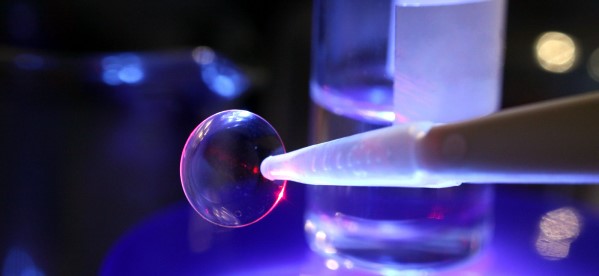
Eyes are sensitive organs, yet they are exposed to dust and germs on a daily basis. According to the World Health Organization (WHO), corneal infections are the cause of one in four cases of vision loss worldwide. Often, the cause is microbial keratitis, which can be caused by bacteria, fungi, yeasts, viruses, or a type of amoeba. The amoeba parasite is the most difficult to treat because it responds poorly to drugs, and traditional therapy can lead to cornea damage on its own.
Researchers at the Fraunhofer Institute for Applied Polymer Research (IAP) have come up with a solution. They have developed a soft contact lens with germicidal properties. The lens is made from a silicone hydrogel, which is a soft plastic that absorbs water readily. They then treat the lens with plasma-activated water (PAW), which is water that has been subjected to an electric discharge at normal atmospheric pressure. PAW has a disinfectant property that kills a wide range of germs. Unlike medicines, it is difficult for microbes to develop a resistance to the treatment, as the oxidizing effects of the water destroys their cell membranes. They used discarded donor corneas and infected them with the amoebas, and found that the treated lenses reliably inactivated the infection.
The researchers hope to start clinical trials as early as this summer, which could lead to an affordable and easy treatment for corneal infections, especially in underdeveloped regions. Millions of people may be able to retain their vision as a result.

